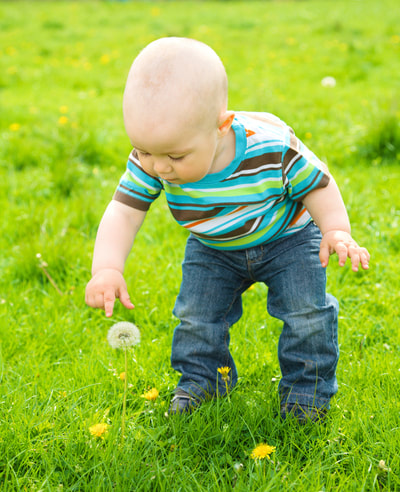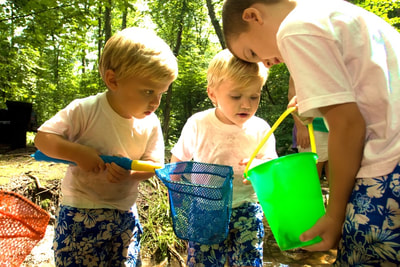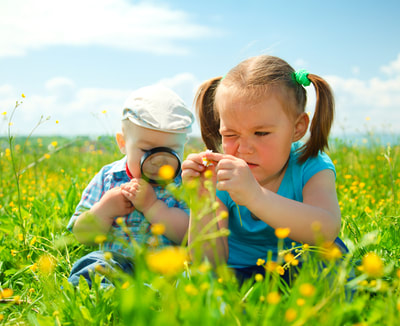|
Children are natural observers and have an innate sense of curiosity. From watching a caterpillar crawl along the ground to making mud with water and dirt, children are naturally interested in watching the world around them at work. As a childcare professional, you should provide safe, fun, and age appropriate science activities and opportunities for the children in your care. Below are some questions and answers that may help you incorporate scientific type activities to the children in your program. Question: Can you provide science activities that I can do with a classroom of 18-24 month olds? Answer: It is important to keep in mind that mostly what children in that age range do naturally is scientific exploration. You can simply provide the opportunities for children to do the explorations. Here is a link to our resource website for specific lesson plan ideas: http://www.lessons4learners.com/toddler.html Question: What kind of science materials would you recommend for a toddler class? Answer: There are tons of objects and materials that you can use for toddlers. As with all things in child care please be sure to exercise caution with your choice of materials and make sure that none provide a choking hazard and that proper supervision is always given. Consider existing materials paired with new materials for scientific exploration. For example, blocks and some natural materials are a new way to explore. Sensory bins and other sensory materials are a common material in many programs and is a wonderful scientific exploration! Consider rotating the sensory materials to fit current curriculum and focusing on scientific concepts such as curiosity and discovery. Here are some links to ideas about toddler science materials. Please be sure to use care in considering these materials and provide proper safety standards at all times. Question: Can you provide more resources for infant and toddler science project ideas? Answer: We provide a resource website with tons of lesson plans that you can access and use in your classroom. Here are two links that may be helpful: http://www.lessons4learners.com/young-infants.html http://www.lessons4learners.com/mobile-infants.html In addition to the information found above we recommend taking our training course Simple Science for Infants and Toddlers which also provides Lesson Plans throughout the training. Here is the link if you are interested in registering for the class Simple Science for Infants and Toddlers: http://www.cdastars.com/store/p453/Simple_Science_for_Infants_and_Toddlers.html Question: How do I make science fun for all ages? Answer: A very simple way to make science fun for every age is to pay attention to what interests your group and make it student-led. For infants and toddlers there are some limitations especially where safety is concerned but if you plan the lessons carefully you can ensure safety and fun where science is concerned. Here are some resources that you may find helpful: For more information on Simple Science for Infants and Toddlers, register for our three hour course: http://www.cdastars.com/store/p453/Simple_Science_for_Infants_and_Toddlers.html Have information to share? Please use the comments section below...
1 Comment
|
Blog Author
Archives
January 2018
Categories
All
|
Successful Solutions Training in Child Development
Enrollment HoursMonday - Friday 7 am – 8 pm
Saturday & Sunday 9 am – 8 pm Holidays 9 am – 8 pm |
Telephone(360) 602-0960
|
|
Registrations that are submitted after enrollment hours will be processed the next morning. You will receive an email with your log-in information to access the course within an hour after we open the next business day.



 RSS Feed
RSS Feed

